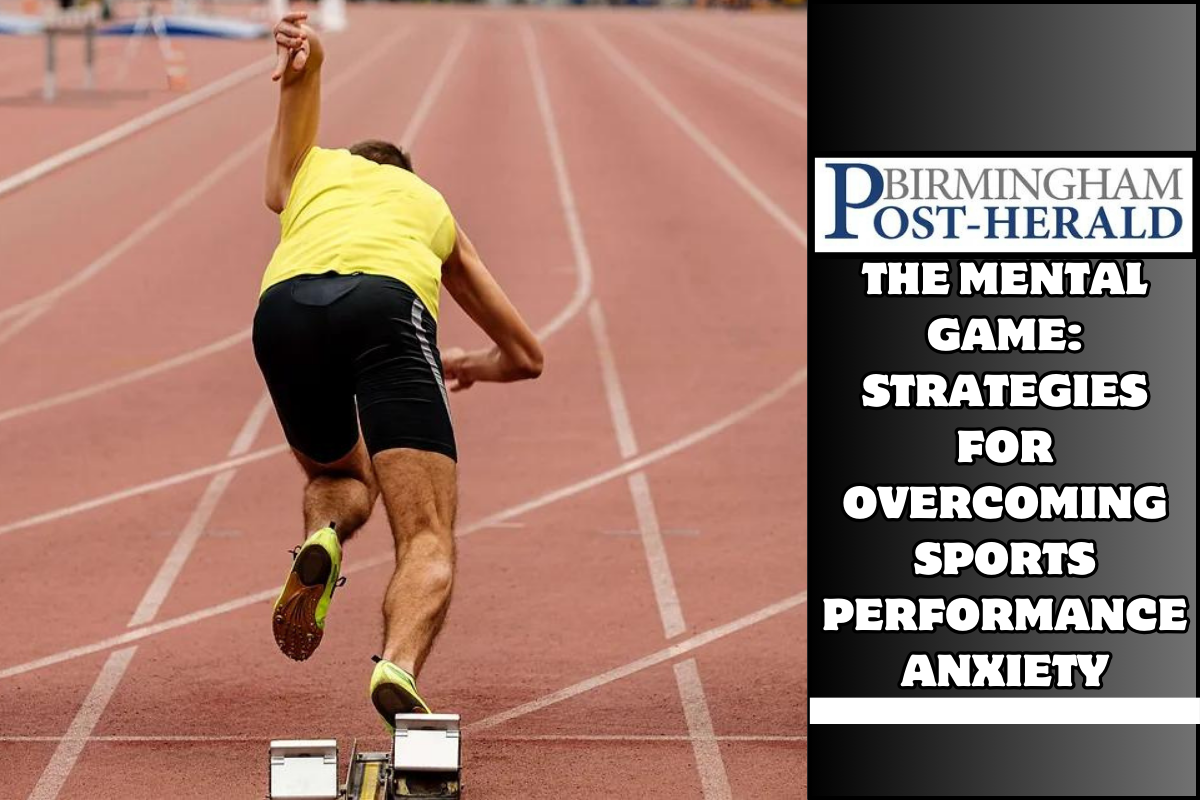The Mental Game: Strategies for Overcoming Sports Performance Anxiety:-A lot of athletes deal with performance anxiety, which can hurt their confidence, ability to concentrate, and general performance. To get over nervousness, athletes need to use a mix of mental strategies, preparation techniques, and changes in how they think in order to do their best under pressure. This blog post will talk about some good ways to deal with performance nervousness in sports and make your mind stronger for competitive sports.
The Mental Game: Strategies for Overcoming Sports Performance Anxiety
Understanding Sports Performance Anxiety
Stress, worry, and a strong need to do well are all signs of sports performance anxiety. People who have it feel nervous, doubt themselves, and fear failing in competitive settings. It can happen to athletes of all levels, from newbies to top professionals, and can show up in the body as symptoms like a racing heart, sweating, and tense muscles. To deal with sports performance anxiety, you need to figure out what causes it, come up with ways to deal with it, and get mentally tough so you can do well in high-pressure situations.
Strategies for Overcoming Sports Performance Anxiety:
Identify Triggers
- Figure out what thoughts, situations, or events make you anxious before or during a fight.
- Keeping a journal can help you figure out what causes your worry and how it changes over time.
Practice Relaxation Techniques
- As part of your pre-game routine, do some deep breathing, gradual muscle relaxation, visualization, and mindfulness meditation to calm down.
- Use these methods to calm down, ease stress, and help your mind stay clear and focused.
Set Realistic Goals
- Set clear, attainable goals for each game or competition. Pay attention to success factors you can manage, like effort, focus, and skill execution.
- To boost your confidence and keep track of your progress, break down bigger goals into smaller, more doable steps.
Develop a Pre-Game Routine
- Set up a regular routine before the game that includes warm-ups, mental preparation, positive self-talk, and visualizing victory.
- Do the same things over and over again to feel comfortable and confident before you compete.
Reframe Negative Thoughts
- Negative self-talk and limited beliefs that make you anxious and doubt yourself should be questioned and reframed.
- Positive affirmations, realistic goals, and statements that boost confidence should be used instead of negative thoughts.
Also Read:-Sustainable Gardening Practices: Eco-Friendly Tips for a Greener Garden
Focus on the Process, Not the Outcome
- Stop focusing on results (winning, scores) and start focusing on steps (effort, execution, plan).
- Instead of just focused on winning or losing, stress how important it is to work hard, learn, and grow.
Visualize Success
- Visualization methods can help you mentally practice doing well by picturing yourself using your skills, making smart choices, and reaching your goals.
- Imagine getting through tough situations, staying calm under pressure, and keeping your confidence up throughout the game.
Embrace Pressure as a Positive Challenge
- Remember that pressure is a normal part of competition and that it can push you to do your best.
- Take advantage of times of stress as chances to show off your skills, grit, and mental toughness.
Seek Support and Guidance
- Talk to a sports psychologist or mental performance teacher to come up with unique ways to deal with stress, boost confidence, and make your mind stronger.
- Talk to your coworkers, coaches, and mentors to get support, encouragement, and a different point of view when things are tough.
Reflect and Learn
- Think about how you did in each game or challenge and make a list of things you could do better. Celebrate your wins and learn from your losses.
- Change your approach and strategies based on comments and your experiences to keep growing as an athlete.
Conclusion
To get over sports performance anxiety, you need to work on the mental, social, and physical parts of your performance all at the same time. Athletes can become more resilient, boost their confidence, and perform at their best under pressure by doing things like figuring out their triggers, practicing relaxation methods, setting realistic goals, re-framing negative thoughts, and asking for help. Accept that your mind is an important part of your physical success, and use these tips to deal with problems, get over stress, and perform at your best in sports.
